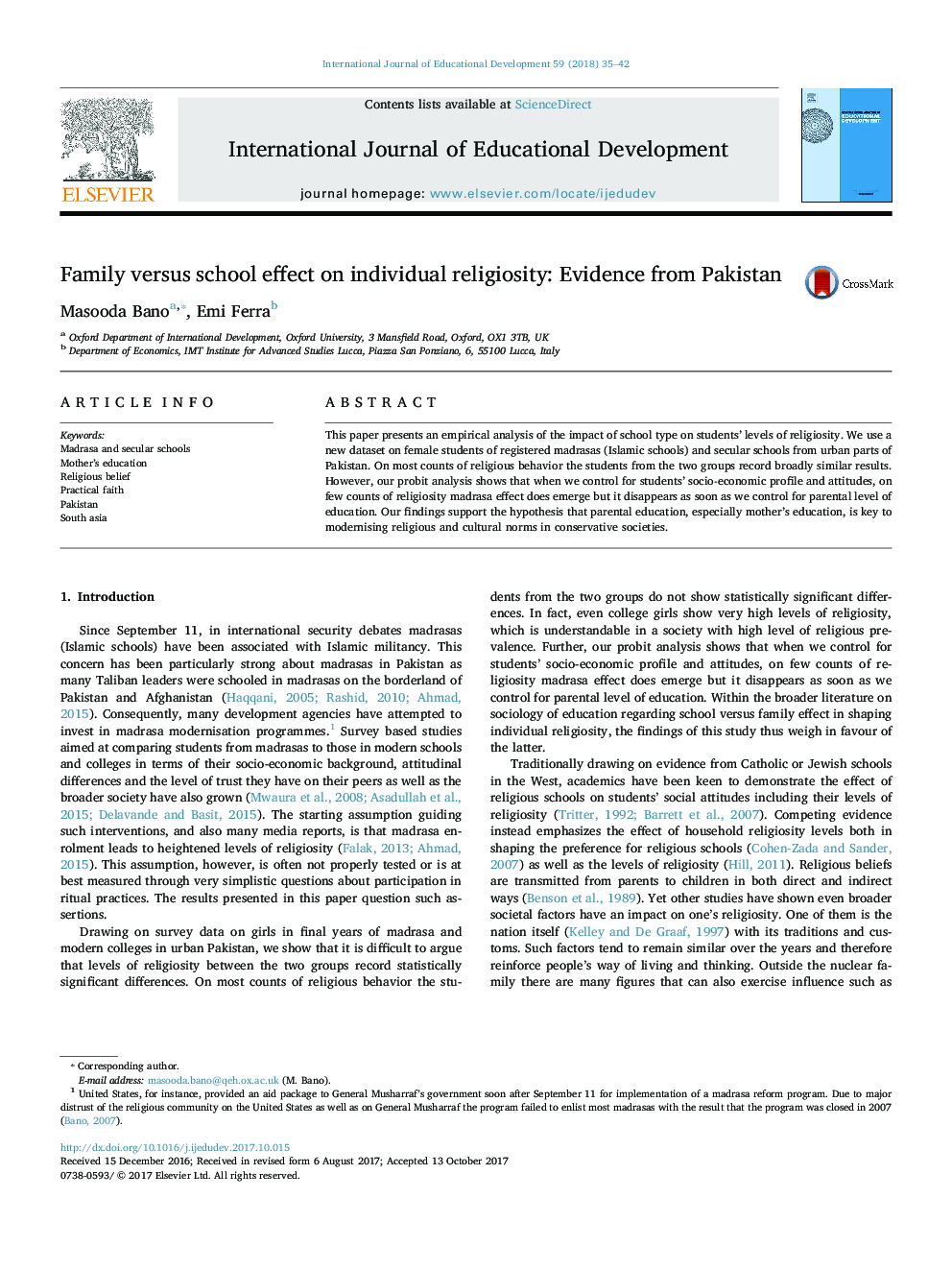| Article ID | Journal | Published Year | Pages | File Type |
|---|---|---|---|---|
| 6841139 | International Journal of Educational Development | 2018 | 8 Pages |
Abstract
This paper presents an empirical analysis of the impact of school type on students' levels of religiosity. We use a new dataset on female students of registered madrasas (Islamic schools) and secular schools from urban parts of Pakistan. On most counts of religious behavior the students from the two groups record broadly similar results. However, our probit analysis shows that when we control for students' socio-economic profile and attitudes, on few counts of religiosity madrasa effect does emerge but it disappears as soon as we control for parental level of education. Our findings support the hypothesis that parental education, especially mother's education, is key to modernising religious and cultural norms in conservative societies.
Keywords
Related Topics
Social Sciences and Humanities
Social Sciences
Development
Authors
Masooda Bano, Emi Ferra,
